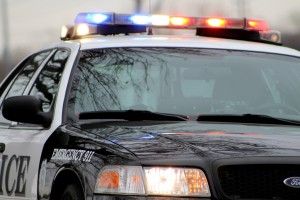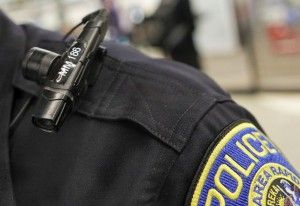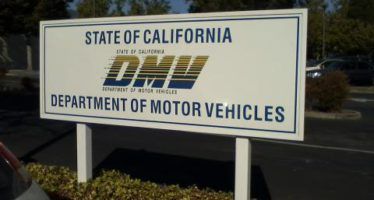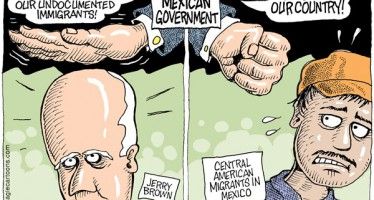Survey: Voters want more police oversight, reform
 This year, Californians wanted more police reform than they’ve gotten.
This year, Californians wanted more police reform than they’ve gotten.
The results of a new poll, touted by activist groups, revealed a constituency for continued re-adjustments in the balance between what law enforcement can do and what residents must expect.
Broad discontent
Commissioned by the American Civil Liberties Union, the July survey found that “voters want increased access to police records, including misconduct investigations and body camera footage,” as the San Gabriel Valley Tribune reported, with 79 percent asking departments “to release their findings when an officer is investigated for wrong doing.”
A further 64 percent support the same practice, The Atlantic’s Conor Friedersdorf observed, “anytime a cop is even accused.”
State law affords a level of privacy to officers that has remained among the most stringent in the country, the Tribune noted, “making it impossible for the public to know when or if an officer received discipline, regardless of the accusation.”
 Skepticism toward law enforcement secrecy has cast suspicion on the groundbreaking use of body cameras adopted by the Los Angeles Police Department — a move seen until fairly recently as a great leap forward in official transparency. “The LAPD policy — approved by the Police Commission on a 3-1 vote in April — allows officers to review images from the cameras before writing reports or giving statements to internal investigators,” as the Los Angeles Times reported. “The department has also said it does not plan to publicly release the recordings unless they are part of a criminal or civil court proceeding.”
Skepticism toward law enforcement secrecy has cast suspicion on the groundbreaking use of body cameras adopted by the Los Angeles Police Department — a move seen until fairly recently as a great leap forward in official transparency. “The LAPD policy — approved by the Police Commission on a 3-1 vote in April — allows officers to review images from the cameras before writing reports or giving statements to internal investigators,” as the Los Angeles Times reported. “The department has also said it does not plan to publicly release the recordings unless they are part of a criminal or civil court proceeding.”
Attention around the poll was heightened as the Golden State headed into its latest high-profile ballot initiative season. With criminal justice and drug war issues at the forefront of many voters’ minds, some analysts detected “an opportunity for policing-reform activists and ambitious politicians” impatient to take on the state’s powerful police unions; “a statewide ballot initiative that takes aim at law-enforcement secrecy could win over voters in 2016,” suggested Friedersdorf.
Limited gains
Sacramento saw a spate of bills this year focused on reforming criminal justice and policing. One ongoing effort, to curb the excessive use of asset forfeiture laws, continued to work its way through the Assembly. Senate Bill 443, authored by Sen. Holly Mitchell, D-Los Angeles, placed “additional restrictions on the state to prevent abuses from civil asset forfeiture, a controversial practice that observers such as the Institute for Justice have called ‘legal plunder,'” according to the Tenth Amendment Center.
But some proposals have run aground in Sacramento, setting legislators up for populist criticism that they couldn’t — or wouldn’t — deliver on their promises. “After vowing to tackle policing this year, California legislators have had a mixed record: a bill banning the use of grand juries to investigate officer killings became law, while measures regulating the use of police body cameras have stumbled,” as the Sacramento Bee noted.
“The remaining focus for civil liberties advocates is Assembly Bill 953, which would require local law enforcement to gather and report data on stops in an effort to suss out racial profiling. It cleared the Assembly floor on a narrow vote and, despite the opposition of law enforcement groups and an estimate that it would cost millions of dollars annually, got out of the Senate Appropriations Committee.”
AB953, named the Racial and Identity Profiling Act of 2015, has drawn the endorsement of the ACLU and minority rights groups. Introduced by Assemblywoman Shirley Weber, D-San Diego, the bill’s centerpiece reflected the view among supporters that policing standards could only be improved by centralizing them — altering California’s “state definition of profiling to include identity characteristics beyond race, creating a uniform system for collecting and reporting basic information on police-community interactions, and establishing an advisory board that develops solutions to curb profiling,” according to the ACLU. Current polling, the organization added, shows roughly two thirds of likely state voters approve of the legislation.
Related Articles
CA’s Tesla challenges other states’ dealership laws
California’s Tesla Motors Inc. is proving as revolutionary in selling cars as making them. It’s challenging states that mandate new
New round of DMV ‘motor voter’ errors reported
One of Gavin Newsom’s first acts after taking office as governor in January was to create a “DMV Reinvention Strike




